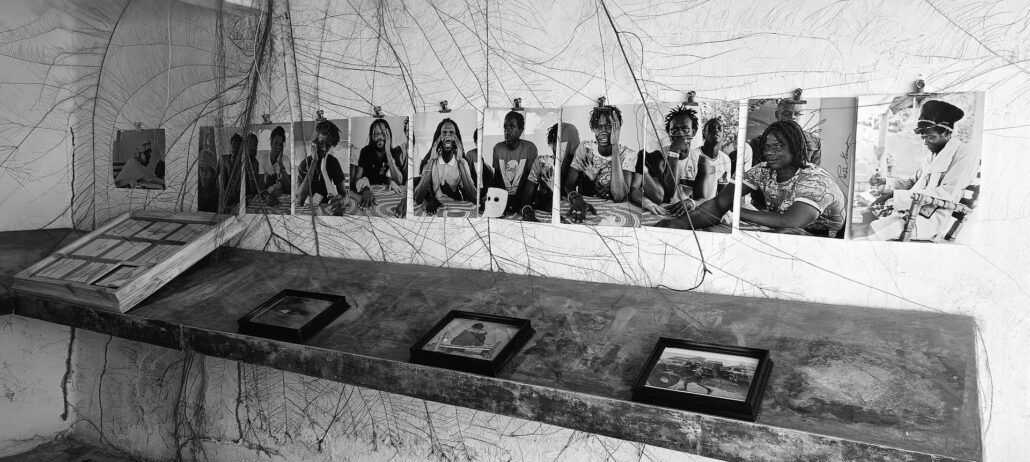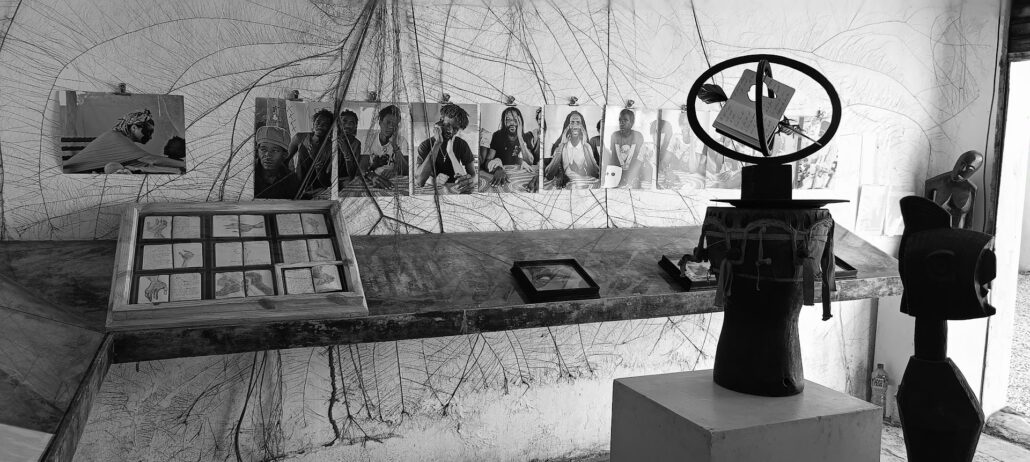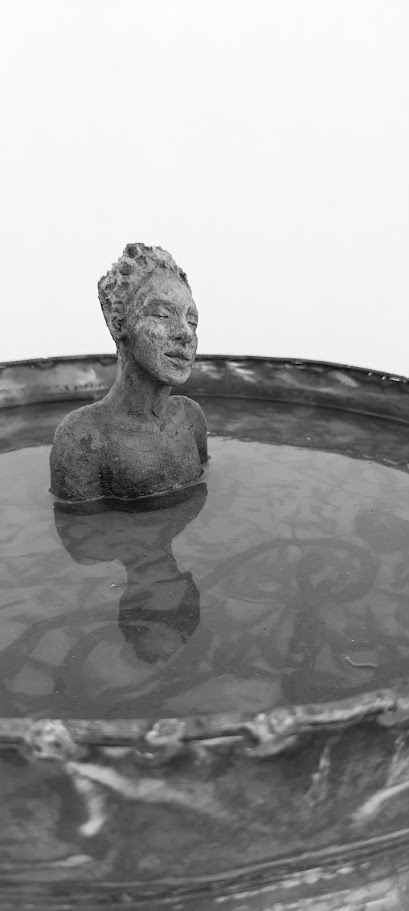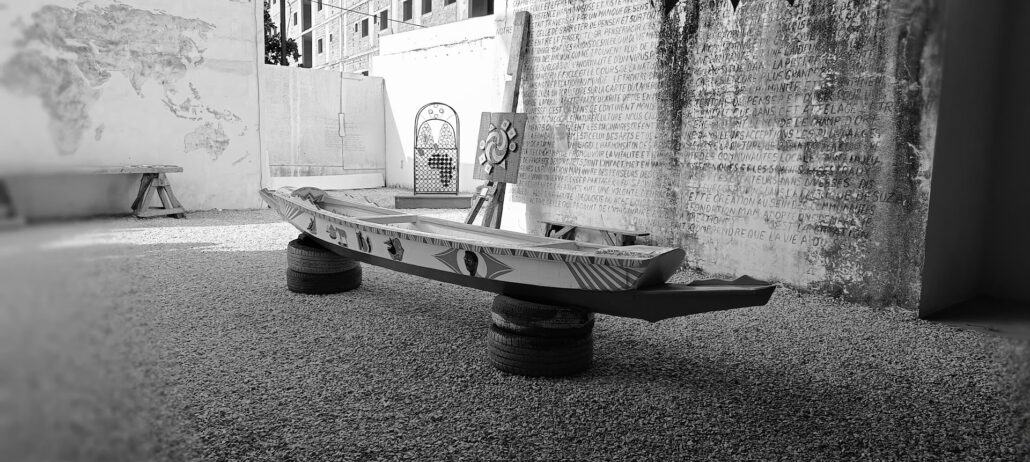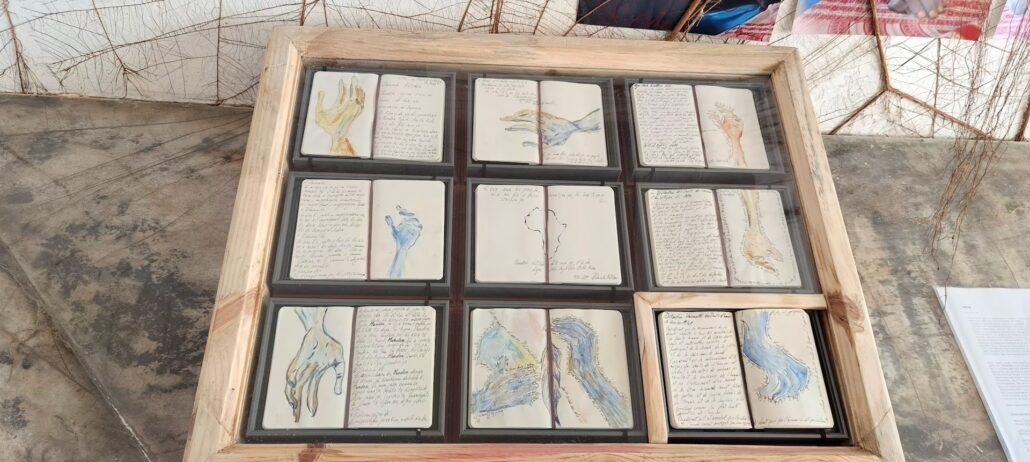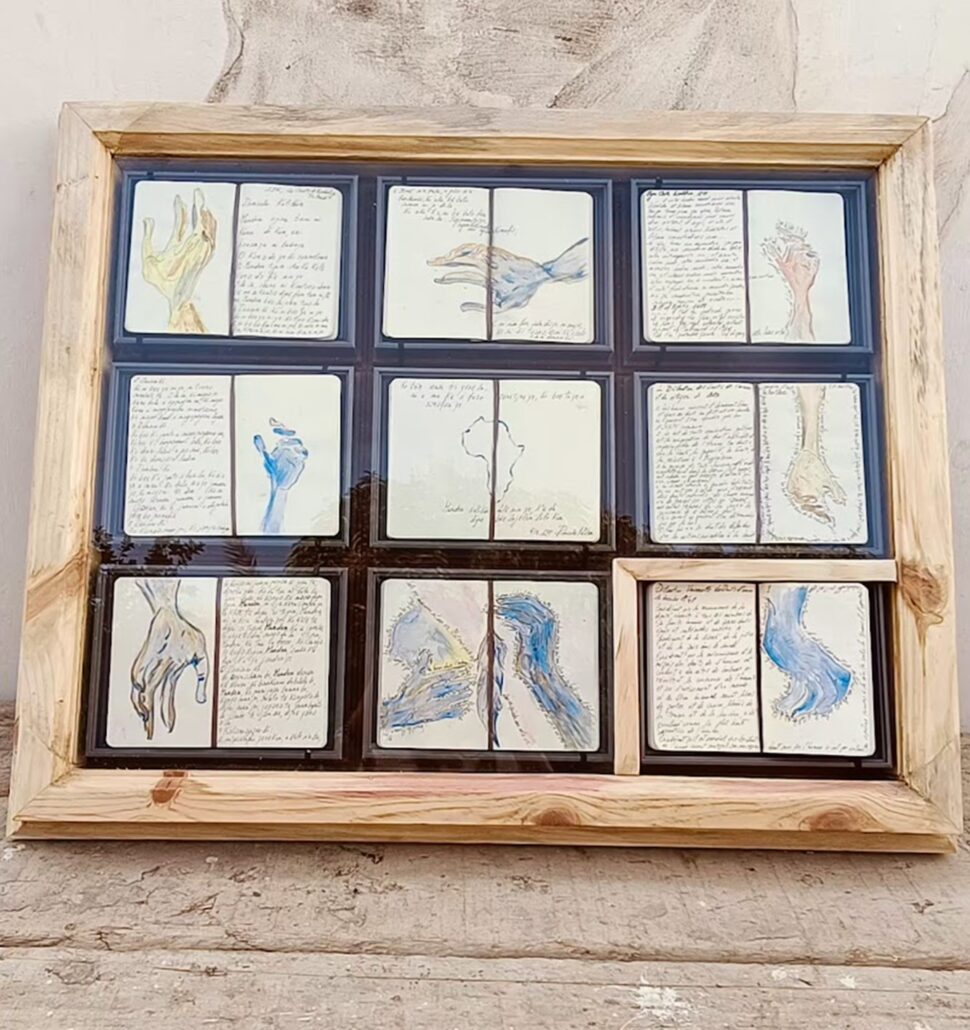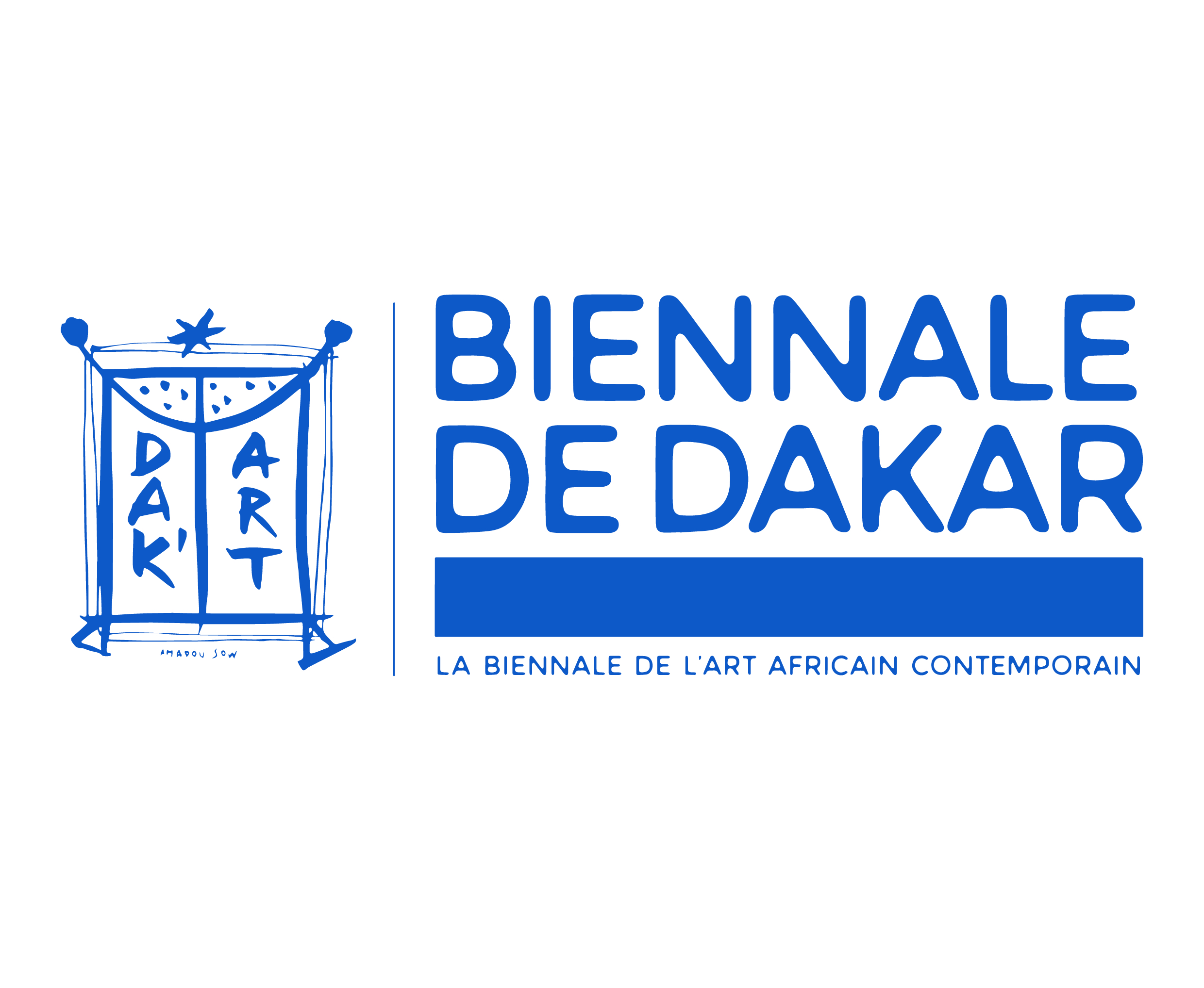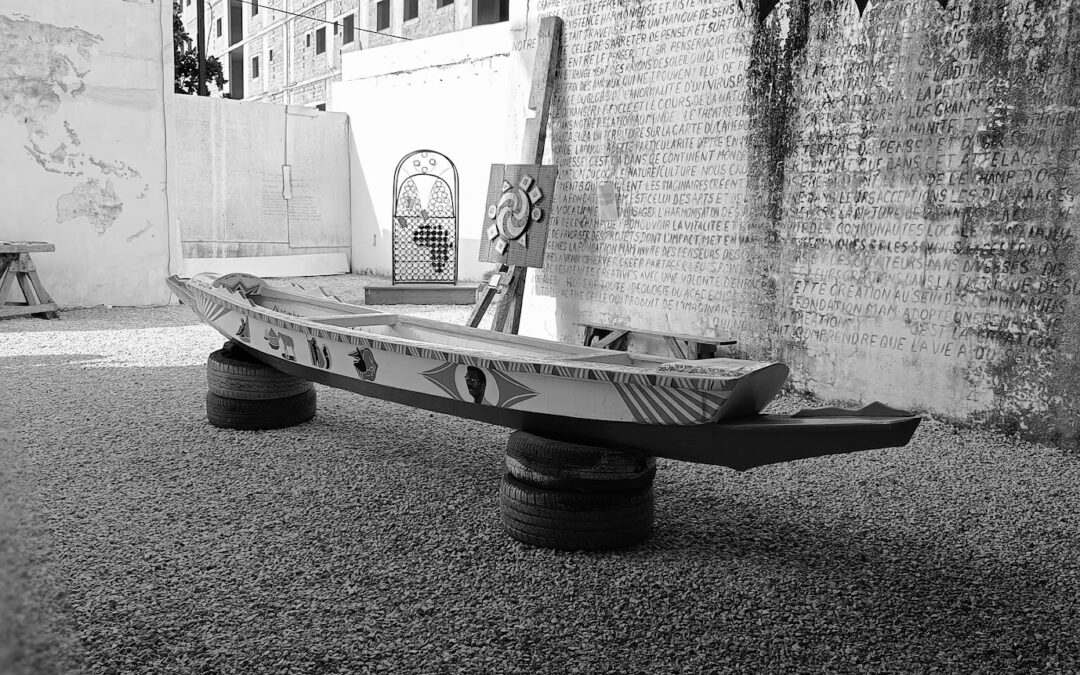L’exposition présentée par la Fondation Donà dalle Rose avec deux grands commissaires, Mr Massimo Scaringella et Mr Sitor Senghor, a été imaginée par la Présidente dans un lieu hautement symbolique qui porte le nom du premier Président du Sénégal, le grand poète et philosophe Léopold Sédar Senghor.
La Fondation Donà dalle Rose soutient la Fondation Léopold Sédar Senghor, et diffuse des trésors de documentation en Italie, notamment au travers de différentes conférences organisées au sein de son palais vénitien.
Les principes et la philosophie d’une bonne gouvernance et des droits naturels du respect de la dignité de l’homme sont préservés dans l’ancien Palais des Doges Francesco, Leonardo et Nicolò Donà dalle Rose depuis 600 ans, et à Dakar, depuis 50 ans, dans le berceau de la Fondation Senghor.
Le rapport entre le droit et l’art, comme moyen de communication et d’expression des préceptes et des bonnes pratiques, de la musique, de la peinture, de la sculpture, de l’écriture, sont le sujet de cette exposition qui remonte le temps à la recherche de la véritable histoire de l’Afrique, bien avant la déclaration des droits de l’homme de l’illuminisme français.
A travers les œuvres des artistes choisis pour cette exposition, les visiteurs seront rappelés à la genèse du droit et à son lien étroit avec l’art et sa capacité à pénétrer directement dans l’âme et les traditions d’un peuple et de sa culture, depuis l’ancienne Charte du Mandé, des siècles avant tous les chartes de l’Europe démocratique moderne, jusqu’à la Charte européenne des droits de l’homme.
La loi naturelle habite le cœur des hommes de toute origine et nation et l’art sait lier cette vision éthique et ce respect de la dignité humaine à la simplicité des œuvres et des outils choisis par les artistes, notamment les sculpteurs, les peintres, les musiciens, les photographes, les céramistes. Sont présents dans cette exposition des artistes Sénégalais, Camerounais, Maliens, Mauritaniens, Italiens, Anglais, Finlandais, Chypriotes, Américains, Serbes, et Japonais.
Le titre et le choix du lieu de l’exposition n’ont pas été choisis au hasard. Les commissaires ont fait appel à des artistes de multiples nationalités pour travailler des œuvres qui constituent une analyse approfondie des théories philosophiques de Léopold Sédar Senghor, philosophe, poète et homme d’État, qui mettent en lumière l’histoire de l’Afrique, précoloniale, lorsque les empires et ses peuples, au Mali, au Soudan occidental, l’actuel Sénégal, au Cameroun, au Congo, en Mauritanie, en Namibie, jusqu’en Somalie, en Érythrée, au Mozambique et ailleurs, ont vécu selon les règles du droit coutumier qui partaient précisément du respect de la dignité de l’homme.
Plusieurs siècles plus tard, ces principes furent également validés en Europe et représentés démocratiquement comme nouveaux dans une vision philosophique rationaliste des lumières françaises.
Ces principes gouvernent un peuple fier et glorieux depuis des millénaires. Senghor, premier président du Sénégal postcolonial, a su comprendre la beauté et la particularité du peuple africain, en introduisant le concept de négritude et de valorisation du rythme comme partie essentielle de la pensée de l’homme. Sa philosophie et ses poèmes ont révélé l’histoire de l’Afrique et de l’humanité née en Afrique.
www.fondazionedonadallerose.org
—————————————————————————————————————————
The rhythm of humanity over the millennia from the Mandé Charter to the Declaration of Human Rights
The exhibition presented by the Donà dalle Rose Foundation with two great curators, Mr Massimo Scaringella and Mr Sitor Senghor, was imagined by the Foundation President in a highly symbolic place which bears the name of the first President of Senegal, the great poet and philosopher Léopold Sédar Senghor.
The Donà dalle Rose Foundation supports the Léopold Sédar Senghor Foundation, and disseminates treasures of documentation in Italy, notably through various conferences organized within its Venetian palace.
The principles and philosophy of good governance and natural rights of respect for human dignity have been preserved in the ancient Doge’s Palace Francesco, Leonardo and Nicolò Donà dalle Rose for 600 years, and in Dakar, for 50 years, in the cradle of the Senghor Foundation.
The relationship between law and art, as a means of communication and expression of precepts and good practices, music, painting, sculpture, writing, are the subject of this exhibition which goes back time in search of the true history of Africa, well before the declaration of human rights of the French illuminism.
Through the works of the artists chosen for this exhibition, visitors will be reminded of the genesis of law and its close link with art and its ability to penetrate directly into the soul and traditions of a people and its culture, from the ancient Charter of Mandé, centuries before all the charters of modern democratic Europe, to the European Charter of Human Rights.
Natural law inhabits the hearts of men of all origins and nations and art knows how to link this ethical vision and this respect for human dignity to the simplicity of the works and tools chosen by artists, notably sculptors, painters, musicians, photographers, ceramists. Present in this exhibition are Senegalese, Cameroonian, Malian, Mauritanian, Italian, English, Finnish, Cypriot, American, Serbian, and Japanese artists.
The title and choice of the location for the exhibition were not selected at random. The curators called on artists of multiple nationalities to work on works which constitute an in-depth analysis of the philosophical theories of Léopold Sédar Senghor, philosopher, poet and statesman, which shed light on the history of pre-colonial Africa, when the empires and its peoples, in Mali, Western Sudan, present-day Senegal, Cameroon, Congo, Mauritania, Namibia, up to Somalia, Eritrea, Mozambique and elsewhere, lived by the rules of customary law which were based precisely on respect for human dignity.
Several centuries later, these principles were also validated in Europe and democratically represented as new in a rationalist philosophical vision of the French Enlightenment.
These principles have governed a proud and glorious people for millennia. Senghor, first president of postcolonial Senegal, was able to understand the beauty and particularity of the African people, by introducing the concept of negritude and the valorization of rhythm as an essential part of human thought. His philosophy and poems revealed the history of Africa and humanity born in Africa.
www.fondazionedonadallerose.org

